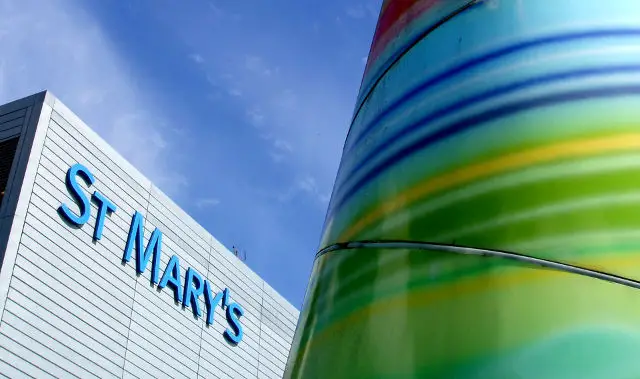Health services have been under huge pressure since Thursday 1st January. This is not unique to the Island, however for the Island this has meant:
- NHS 111 call rates at 30-40% continue to be above normal rates
- 999 call rates above usual levels until Saturday 3rd January
- Walk-in cases to Beacon Health Centre have been above normal rates
- Admissions to St Mary’s Hospital have been above normal rates
Services are now at a critical point and the impact has been:
- Ambulances at some times have been queuing at the Emergency Department – this reduces the number available to answer 999 calls and some callers may have experienced a delay for less serious conditions.
- More patients than usual have been kept in intensive care because they can’t be moved to other beds
- There is a delay in the movement of patients from the Emergency Department and Medical Assessment Unit into the main hospital
To cope with this surge in demand the Trust has
-
opened up additional areas:
- Diagnostic Imaging, which is adjacent to the Emergency Department, has been used to triage and treat minor injuries
- 32 additional beds have been opened up over the last couple of weeks and some beds have been prioritised for emergency admissions
- sought assistance from Red Cross who have provided an ambulance crew
- brought in additional staff over this weekend – call takers, paramedics, nurses, doctors, healthcare assistants, etc
- nursing home and residential care beds across the Island have been filled where possible to relieve the pressure.
- cancelled scheduled operations for the majority of patients who were due to have operations on Monday 5th January. It is likely that more operations scheduled for Tuesday 6th January will be cancelled. Patients will be contacted directly. Cancelled operations will be rescheduled as quickly as possible.
- There is no change to outpatients for Monday 5th January
Mark Price, On Call Executive Director for Isle of Wight NHS Trust said:
“This pressure is different from last year when we experienced a ‘black alert’. The pressure has been sustained and we have been seeing more severely ill patients in the Emergency Department than predicted such as cases of severe respiratory conditions.
“There has been a fall in the last 24 hours in the number of people calling 999 and more Islanders are calling 111. We’d like to thank Islanders for heeding the message that services are under pressure. Islanders can continue to assist services by following the guidance in the ‘What to know and when to go guide…’ or the NHS Choices website at www.nhs.uk.
“It is very important that the guidance of GPs, nurses and pharmacists, and the instructions given with medicines, are followed precisely. It is also important to ensure that if you require a repeat prescription that should be obtain that in good time from your GPs surgery.”
Cases attending the Beacon Health Centre over the weekend which were inappropriate include:
- A cough
- Back pain which they have had for three weeks
- A rash
These and other examples are cases which can either be treated with self care or with advice from a pharmacist. Our ‘What to know and when to go guide…’ explains in detail the options for patients and their relatives or carers. Persistent back pain should initially be reviewed by the patient’s registered GP.
Patients may be unaware of the Pharmacy First scheme which allows the free supply of medicines by your pharmacist to treat most minor ailments. This means they can get expert advice and treatment for most minor ailment conditions without the need to see a GP. All consultations are private and the medicine supply is free to those who are eligible for free prescriptions.
Details of pharmacists with early and late opening are attached.
Islanders are encouraged to take more care with their health where possible by either asking their local pharmacy staff for advice; looking for advice on line (www.nhs.uk); or self-treating using some basic medicine cabinet essentials.
Common complaints which can be treated at home with advice from the pharmacist include:
- Skin conditions, such as mild acne and mild eczema
- Coughs and colds including nasal congestion and sore throat
- Minor cuts and bruises
- Constipation and haemorrhoids (piles)
- Hay fever and allergies
- Aches, pains, such as headaches, earaches and backaches
- Indigestion, diarrhoea and threadworms
- Period pain and thrush
- Warts and verrucas, mouth ulcer and cold sores
- Athletes foot
- Nappy rash and teething
Services available from local pharmacies include:
- Emergency contraception
- Stop smoking services
- Minor Ailments
- HIV and Hepatitis testing
- Flu Vaccination – NHS and private services
- Hepatitis B Vaccination
- Stop smoking services
- Pregnancy testing
GPs should be visited if you have concerns about a condition that will not go away, or is getting worse. It is important to visit your GP if you have a recurring condition that is affecting your ability to function on a day to day basis.
For emergency dental treatment at weekends and bank holidays, call your own dentist first. If unable to make contact or unregistered on IW, call 0845 0508345, 8.30am to 9.30pm every day.
Image: © Used with the kind permission of Auntie P





